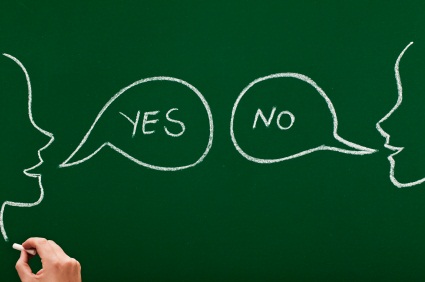pissed off feminist fights back: i don’t owe you anything
 I went out to a bar on Australia Day. I was in the middle of a conversation with a friend when a pair of men thought they’d try to engage with us. If strangers begin talking to me at a bar or club, I assume that they’re trying to, quite frankly, get into my pants. That was what they were trying to do. I responded in course.
I went out to a bar on Australia Day. I was in the middle of a conversation with a friend when a pair of men thought they’d try to engage with us. If strangers begin talking to me at a bar or club, I assume that they’re trying to, quite frankly, get into my pants. That was what they were trying to do. I responded in course.
When I want someone to leave me alone, I will reply. I will reply but I’ll do so in a curt way. I’ll speak to them as though I have somewhere else to be. I’ll nod and try to be as polite as I feel necessary, without being encouraging. I hope that when it is a man expressing romantic interest that a male friend or the boyfriend will pop up soon enough and they’ll scatter, assuming that they have no chance with me. But that didn’t happen this time.
One at a time, they spoke to us. One insinuated that we were homosexual, then made jokes about our outfit choices. The second apologised for his mate’s impropriety, then tried to make small talk about art and the events of the day. I half-smiled and nodded and avoided making eye contact. ‘Can you at least pretend to be interested?’ I shrugged, and said I was trying. My friend began to explain that we had been in the middle of a conversation that was rudely interrupted, that their interjection was unwarranted, and that we weren’t keen. I nodded along, relieved.
There I realised something about the nature of harassment. Being stuck in a situation where you are uncomfortable doesn’t stem entirely from a man not understanding boundaries or thinking that he is entitled to your conversation. It also comes from a feminine reluctance to say, quite simply, ‘fuck off.’ I shouldn’t feel obliged to speak to a complete stranger at a bar if I don’t want to. I shouldn’t have to smile and nod so as to save his feelings
I think my reluctance to speak up during uncomfortable social situations stems from fear. It stems from the possibility that were I to outright reject a person’s advances things could go horribly awry. It comes from a fear that things could turn violent. Because the way women are educated about stranger danger is different to the way men are taught. Women read horror stories about men who won’t take ‘no’ for an answer. This is a culture of fear – where men feel entitled to a woman’s company, and a woman feels obliged to pander to that sense of entitlement.
And we shouldn’t. It’s not up to us to make strangers feel good about themselves. It’s not up to us to accommodate for them, to stop our conversations, to give them a peck on the cheek to spare their feelings. It’s up to them to realise that demanding attention from a complete stranger is not okay. It’s up to society at large to educate young people, to teach boys to treat women properly, and to teach girls that they don’t have to engage with anyone they don’t want to engage with. It’s only in the context of widespread social change that as a woman I’ll stop fearing the repercussions of such a rejection. It’s only if people understand that culture of fear that women will be able to say ‘no’ and not be afraid.
My father once said, ‘You don’t owe him anything.’ At the time I thought he was giving me permission to be cruel in relationships— to see whoever I wanted whenever I wanted and fuck the rest. I now understand that what he was really saying, and this is quite sweet actually, is that I’m not obliged to do anything for the man I’m seeing, or for strangers. They’re not entitled to my body or even my conversation, and I owe them nothing.
Strangers, I don’t owe you anything.
(Image credit)

Wow, the third-last paragraph is so dead on about the subtle, immensely frustrating distinctions between how men and women are taught to respond to unwanted attention. It’s an incredibly frustrating expectation of propriety which resonates with me so fully.
Thank you for articulating something which goes unacknowledged beneath the guise of misguided politeness.